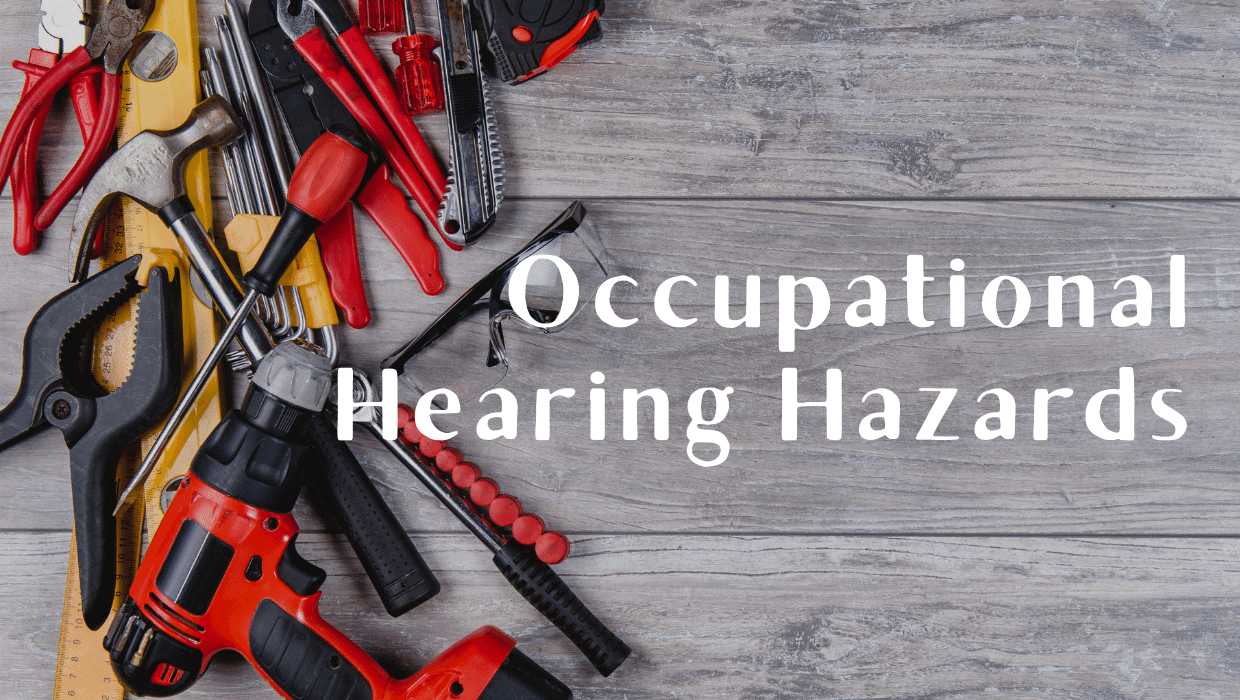Approximately 30 million individuals are exposed to unsafe levels of noise on the job, according to the US Occupational Safety and Health Administration (OSHA). For more than 25 years, occupational hearing loss has been “one of the most prevalent occupational health concerns in the US,” according to OSHA. They report that “due to high workplace noise, thousands of employees suffer from preventable hearing loss.”
From construction to manufacturing to even dentistry, some of the loudest occupations can do severe damage to your ears. The good news: regardless of one’s profession there are ways to avoid hearing damage.
At which point is it too loud?
How loud is too loud when it comes to noise levels in the workplace? Noise is measured in decibels (dB), and when the noise level is 90dB, OSHA mandates a maximum of 8 hours a day. The federal research arm the National Occupational Safety and Health Institute (NIOSH) goes even further – it recommends that noise not exceed 8 hours of work at 85-decibel noise levels. This is equivalent to the sound of heavy traffic. Heavy machinery, sirens, fireworks, a rock concert, or firearms are noises that far exceed this limit.
The louder the noise, the faster you develop an irreversible loss of hearing. Even being exposed for a few minutes or an hour to these loud sounds can lead to temporary loss of hearing or ringing in your ears (tinnitus).
It is important to safeguard your hearing if you’re in a noisy environment for long periods of time. Here’s a simple rule of thumb to follow: If it is so loud you have to yell to be heard by your friends, you need to protect your ears.
How do I keep my hearing safe at work?
According to Benjamin Franklin, an ounce of prevention is worth a pound of cure. Here’s how to defend yourself from hearing loss caused by noise:
- Find the source of the noise and stay physically distant from it. Also, ensure that your work equipment is well oiled and maintained to keep it running as quiet as possible.
- Ask your boss to provide hearing protection if you work anywhere, regularly exposed to sounds above 85 dB.
- Whenever you are around loud sounds (concerts, shooting guns, handling lawn equipment), remember to wear your hearing protection correctly to get the maximum benefit.
- If you listen to music while working, try to keep it no more than 60% of your device’s maximum volume.
When it comes to noise in the workplace what are my rights?
OSHA states that employers who routinely subject their staff to noises above 90dB over eight hours have a responsibility to protect their workers from hearing damage. As far as the noise at work is concerned workers have the right to:
- be informed about the likely noise threats in their working environment.
- check company reports of those at work who have acquired hearing loss previously.
- talk to OSHA and ask them to audit the employer’s workplace if they feel that their employer is violating OSHA regulations.
- reserve the right to voice complaints about noise without getting fired.
Do you already have hearing loss?
If you are reading this there is a good chance that you are already experiencing hearing loss. It might be time to get your hearing tested by an audiologist if you have difficulty understanding what other people say, or it sounds like they are mumbling. This is a matter of workplace safety, and the issue should be treated as soon as possible.
Hearing damage caused by noise is sadly irreversible. While researchers are working on new therapies that might one day regain the function of healthy ears, these options are not likely to arrive soon enough for the millions of Americans who need help now. The next best treatment is hearing aids, which have advanced in technology significantly in the last decade.
Contact us at The Hearing Health Center of Houston if you are worried about your hearing ability or the amount of noise exposure you have experienced at work. We provide extensive hearing tests, custom hearing protection products, and hearing aids fittings. Our team is ready to help improve your hearing and get you back to work safely!


